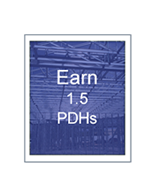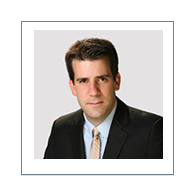|
Presentation Outline:Although cold-formed steel (CFS) trusses often represent an economical roof framing option for buildings with pitched roofs, CFS trusses are not included as a conventional construction option in UFC 4-010-01 DoD Minimum Antiterrorism Standards for Buildings. This standard requires that structural systems used to frame building envelopes that are not considered "conventional construction" (e.g., CFS trusses) to be shown through analysis or testing to exhibit a building-specific antiterrorism level of protection for a building-specific blast load requirement. Unless waived, this requirement applies to all new, and sometimes existing, DoD construction. This webinar will provide an overview of issues that should be considered when specifying or designing CFS trusses to resist airblast loading, namely: (1) test data that sheds light on limit states and the inelastic response behavior of CFS; (2) characteristics associated with airblast loading applied to pitched roofs; (3) an overview of two analytical methods (i.e., single degree-of-freedom and finite element) that can be employed to analyze CFS trusses for airblast loading, including attendant assumptions, boundary condition considerations, and limitations associated with each; (4) an overview of information that should be included in a delegated design specification; and (5) two examples to illustrate the concepts discussed in the webinar.
Webinar Materials
 The day before the webinar, participants will have access to electronic versions of the following: The day before the webinar, participants will have access to electronic versions of the following:
- Presenter’s notes
- Evaluation Form
- Attendance Form
Who Should Attend?
This webinar is for architects, engineers, building officials and contractors.
Webinar Format
Web-based seminar using "Go To Meetingr" Technology.
Webinar Duration
1+ hour of lecture, followed by discussion and questions. (1.5 hours total).
Webinar Cost
- $75 per computer screen for CFSEI and SFA members. $100 for non-members.
- Registrations must be received 48 hours prior to the webinar or a $20 late registration will be accessed.
Presenter
 Mark Weaver is a Senior Engineer at Karagozian & Case, Inc. (K&C) where he utilizes engineering and computational methods to analyze and design a wide variety of structural components to resist the effects of blast and impact loads. His experience includes the design of new blast resistant window, door, wall, and roof systems using single degree-of-freedom and high-fidelity physics-based finite element models. As part of this work, Mr. Weaver has investigated the performance and potential failure modes of cold-formed steel systems via quasi-static laboratory and live-fire field testing. In addition, he has served as the blast engineering consultant for a number of federal and commercial projects in the US and overseas. He is experienced with the application of the Unified Facilities Criteria (UFC), particularly UFC 4-010-01, UFC 3-340-01, and UFC 3-340-02, and the analytical methods described within. Mark Weaver is a Senior Engineer at Karagozian & Case, Inc. (K&C) where he utilizes engineering and computational methods to analyze and design a wide variety of structural components to resist the effects of blast and impact loads. His experience includes the design of new blast resistant window, door, wall, and roof systems using single degree-of-freedom and high-fidelity physics-based finite element models. As part of this work, Mr. Weaver has investigated the performance and potential failure modes of cold-formed steel systems via quasi-static laboratory and live-fire field testing. In addition, he has served as the blast engineering consultant for a number of federal and commercial projects in the US and overseas. He is experienced with the application of the Unified Facilities Criteria (UFC), particularly UFC 4-010-01, UFC 3-340-01, and UFC 3-340-02, and the analytical methods described within.
Mr. Weaver graduated from the University of Southern California with Magna Cum Laude honors and went on to receive both his Master of Civil Engineering and Master of Engineering Management from The Johns Hopkins University and Duke University, respectively. He is a licensed Professional Engineer (Civil) and Structural Engineer in the state of California.
|